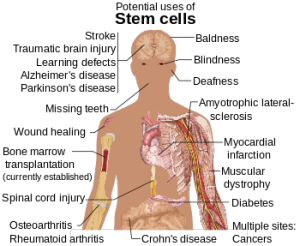 I found two exciting pieces of research this week that will affect my treatment. If you have been following me you will know that I am fascinated with the gut bacteria and the other tiny creatures that account for 90% of our DNA. The gut/brain interface is more fascinating than you might imagine!
I found two exciting pieces of research this week that will affect my treatment. If you have been following me you will know that I am fascinated with the gut bacteria and the other tiny creatures that account for 90% of our DNA. The gut/brain interface is more fascinating than you might imagine!
The first study from the University of Helsinki found that the gut bacteria- the microbiome- of people with Parkinson’s is different than that of healthy people. We have more of some bacteria- which increase the worse the symptoms get and others have gone missing, relatively speaking.
The more Enterobacteriaceae we have, the more severe the symptoms. A lack of Prevotellaceae bacteria in Parkinson’s sufferers could mean these bacteria might have a property which protects their healthy hosts from the disease. This seems strange since I generally consider Prevotellaceae to be a sign of inflammation. Or does this discovery merely indicate that intestinal dysfunction is part of the pathology? It might be a result of Parkinson’s disease.
Gut Microbiota and Parkinson’s Disease: Connection Made
Related articles








The second piece of research in Blood, the Journal of the American Society of Hematology, shows that people with more gut bacteria do better with stem cell transplants. The more diverse the microbiome, the better the stem cells take. This of course gets me questioning the pre-op antibiotics that StemGenex recommends. Next stop is sending them the research!
Now given that a healthy gut should have some 10,000 species according to Martin Blaser’s book Missing Microbes and a functioning biofilm, taking a probiotic with a maximum of 13 species of lactobacillis and bifidobacteria isn’t going to make it. I do like to take Saccharomyces boulardii which tends to be under-represented and soil based probiotics for the same reason. And to eat Jerusalem artichokes which help them grow. So I am onto my fermented food regimen which allows for unnamed wild species: full fat unsweetened yogurt from different animal milks, olives, miso of various sorts, blue cheese, kombucha, fermented veggies, kimchee, pickles, refrigerated sauerkraut and raw milk products.
Here is the summary of the research: